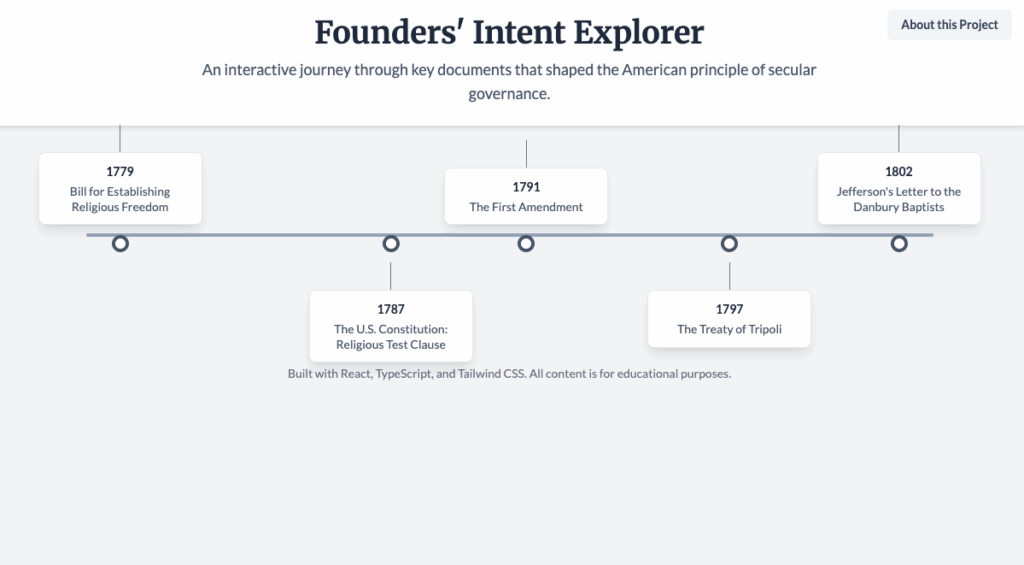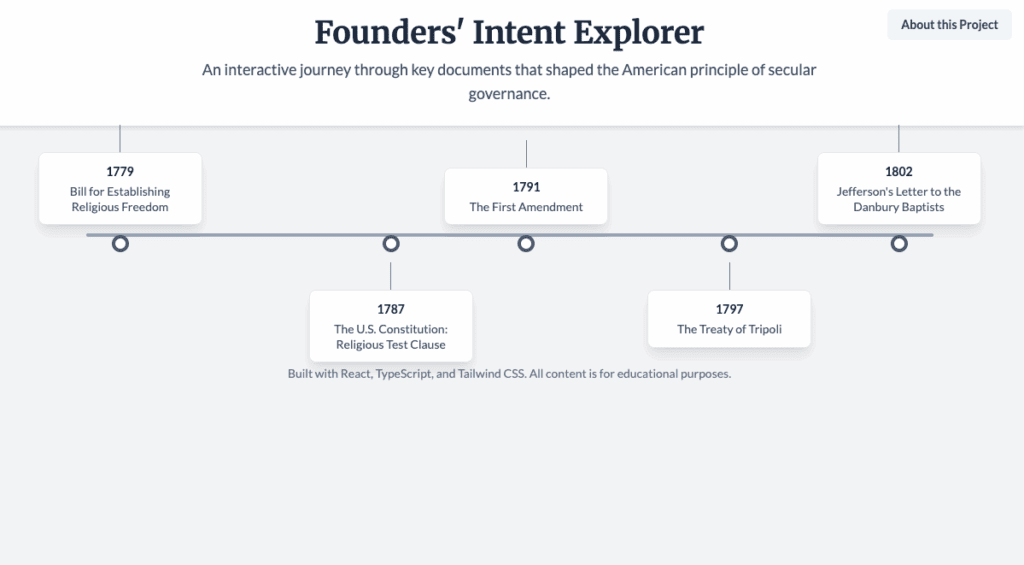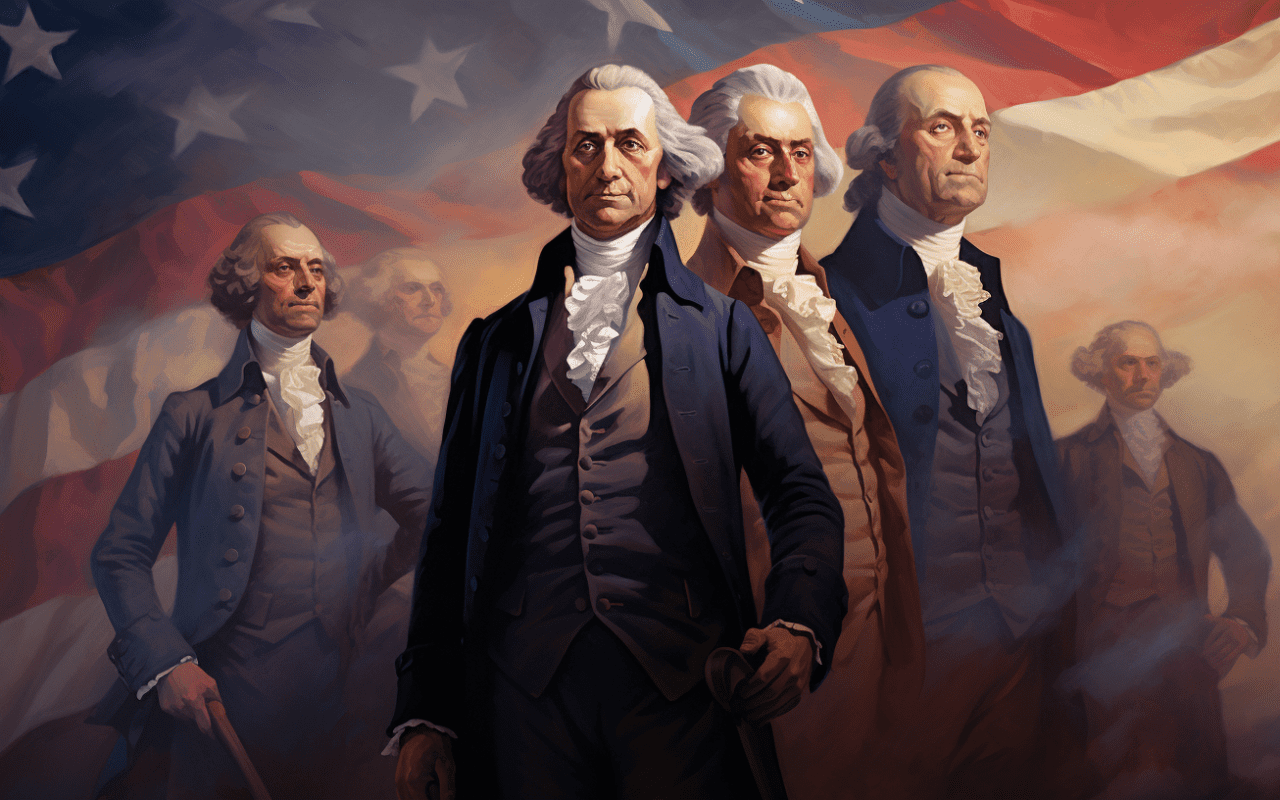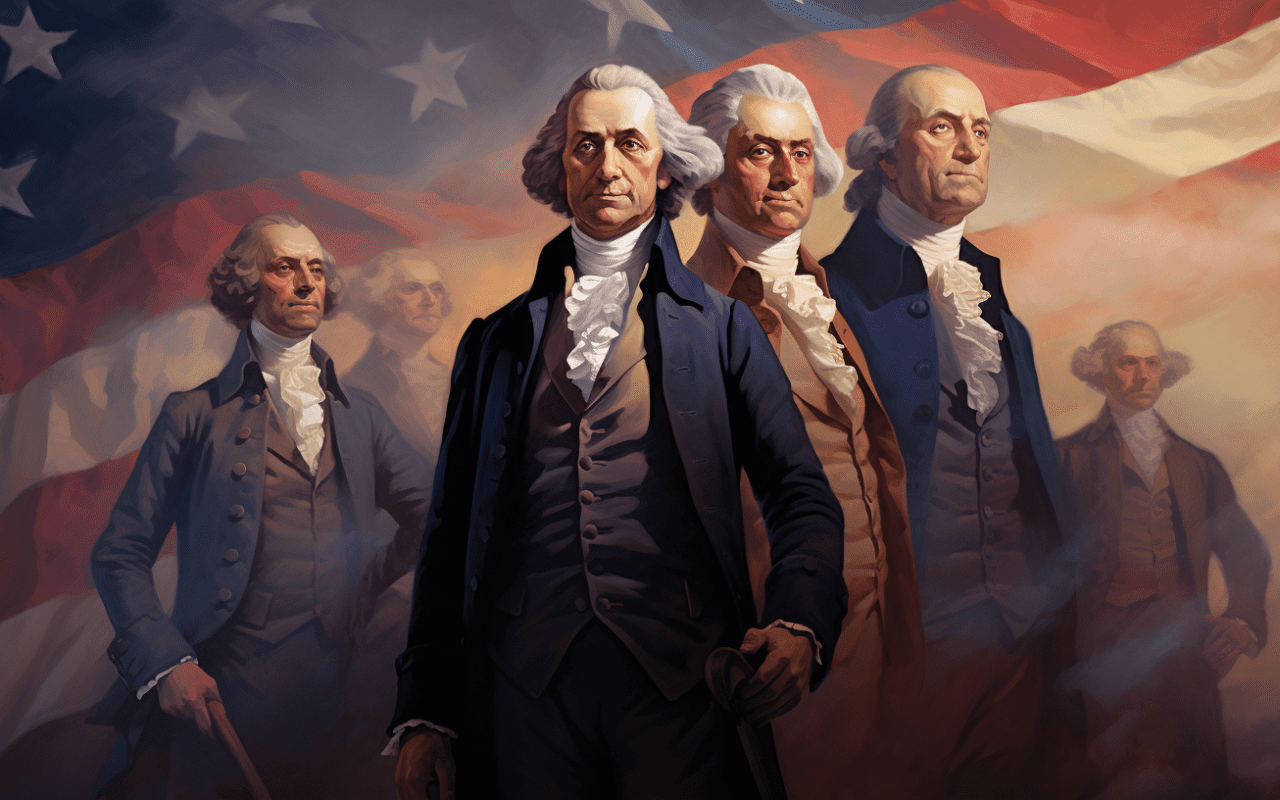The Founders knew acutely the pains of centuries of religious warfare in modern Europe and resoundingly did not want that for their new nation. Many of them moreover knew religious persecution intimately — some whose families fled the Church of England for fear of being imprisoned, burned at the stake, or worse. Is America a Christian nation? Although many Christians certainly have come here, in a legal and political sense the nation’s founders wanted precisely the opposite of the “Christian nation” they were breaking with by pursuing independence from the British.
Contrary to the disinformation spread by Christian nationalists today, the people who founded the United States explicitly saw religious zealotry as one of the primary dangers to a democratic republic. They feared demagoguery and the abuse of power that tilts public apparatus towards corrupt private interest. The Founders knew that religion could be a source of strife for the fledgling nation as easily as it could be a strength, and they took great pains to carefully balance the needs of religious expression and secular interests in architecting the country.

Americans sought religious freedom
The main impetus for a large percentage of the early colonists who came to the Americas was the quest for a home where they could enjoy the free exercise of religion. The Protestant Reformation had begun in Europe about a century before the first American colonies were founded, and a number of new religious sects were straining at the bonds of the Catholic Church’s continued hegemony. Puritans, Mennonites, Quakers, Jesuits, Huguenots, Dunkers, Jews, Amish, Lutherans, Moravians, Schwenkfeldians, and more escaped the sometimes deadly persecutions of the churches of Europe to seek a place to worship God in their own chosen ways.
By the late 18th century when Thomas Jefferson wrote the Declaration of Independence, many religious flowers were blooming within the 13 colonies. He had seen for himself the pitfalls of the experiments in which a unitary control of religion by one church or sect led to conflict, injustice, and violence. Jefferson and the nation’s other founders were staunchly against the idea of establishing a theocracy in America:
- The founding fathers made a conscious break from the European tradition of a national state church.
- The words Bible, Christianity, Jesus, and God do not appear in our founding documents.
- The handful of states who who supported “established churches” abandoned the practice by the mid-19th century.
- Thomas Jefferson wrote that his Virginia Statute on Religious Freedom was written on behalf of “the Jew and the gentile, the Christian and the Mahometan, the Hindu and the infidel of every denomination.” In the text he responds negatively to VA’s harassment of Baptist preachers — one of many occasions on which he spoke out sharply against the encroachment of religion upon political power.
- The Constitution explicitly forbids a religious test for holding foreign office.
- The First Amendment in the Bill of Rights guarantees that “Congress shall make no law respecting the establishment of religion, or prohibiting the free exercise thereof.”
- There is a right-wing conspiracy theory aiming to discredit the phrase “wall of separation between church and state” by claiming that those exact words aren’t found in the Constitution.
- The phrase comes from Thomas Jefferson’s 1802 letter to the Danbury Baptists, wherein he is describing the thinking of the Founders about the meaning of the First Amendment’s Establishment Clause, which Jefferson contemplates “with sovereign reverence.”
- The phrase is echoed by James Madison in an 1803 letter opposing the building of churches on government land: “The purpose of separation of Church and State is to keep forever from these shores the ceaseless strife that has soaked the soil of Europe with blood for centuries.”
- The 1796 Treaty of Tripoli states in Article 11: “As the government of the United States of America is not in any sense founded on the Christian Religion,-as it has in itself no character of enmity against the laws, religion or tranquility of Musselmen,-and as the said States never have entered into any war or act of hostility against any Mehomitan nation, it is declared by the parties that no pretext arising from religious opinions shall ever produce an interruption of the harmony existing between the two countries.” — President George Washington first ordered the negotiation of a treaty in 1795, and President John Adams sent the treaty to the Senate for ratification in 1797, with this article widely interpreted to mean a reiteration of the purpose of the Establishment Clause to create a secular state, i.e. one that would not ever be going to holy war with Tripoli.
Critical Dates for Religious Freedom in America
From the very beginning the Founders made clear they did not want to repeat the mistakes of Old Europe. They established a secular government that offered religious freedom to many who had felt persecuted in their homelands — for generations to come.
Get a quick overview of some of the most important moments in American history and its founding documents with our interactive timeline below.


The Founders were deists
Moreover, the majority of the prominent Founders were deists — they recognized the long tradition of Judeo-Christian order in society, but consciously broke from it in their creation of the legal entity of the United States, via the Establishment Clause and numerous other devices. The founders were creatures of The Enlightenment, and were very much influenced by the latest developments of their day including statistics, empiricism, numerous scientific advancements, and the pursuit of knowledge and logical decision-making.
What Deism Actually Meant: Deism in the 18th century was a rationalist religious philosophy that accepted the existence of a creator God based on reason and observation of the natural world, but rejected supernatural revelation, miracles, and divine intervention in human affairs. Think of it as “God as clockmaker” — God designed the universe with rational laws, set it in motion, and then stepped back. This was a radical departure from traditional Christianity.
The Enlightenment Context:
The Founders were steeped in Enlightenment philosophy — Locke, Montesquieu, Voltaire, Hume. They believed in:
- Empiricism over revelation — knowledge comes from observation and reason, not scripture
- Natural rights derived from human nature and reason, not divine command
- Social contract theory — government legitimacy comes from consent of the governed, not God’s anointing
- Scientific method — Newton’s physics showed that the universe operated by discoverable natural laws
This was a revolutionary shift. They were designing a government based on Enlightenment principles in an era when most of the world still operated under divine-right monarchy.
The European Church-State Problem They Rejected:
The Founders had vivid historical examples of why mixing religion and state power was dangerous:
- The Thirty Years’ War (1618-1648) killed roughly 8 million Europeans in religious conflict
- The English Civil War was fought partly over church governance
- The Spanish Inquisition showed what happens when church and state merge
- Various European states still had official churches that persecuted religious minorities — prompting many of them to consider a new line in the American colonies
They saw how “established” (government-sponsored) religions inevitably led to:
- Religious tests for public office
- Tax support for churches people didn’t believe in
- Legal persecution of dissenters
- Corruption of both religion and government
Thomas Paine’s Radical Vision:
Paine went even further than most Founders. In “The Age of Reason” (1794), he argued:
- All national churches are “human inventions set up to terrify and enslave mankind”
- Revelation is meaningless — “it is revelation to the first person only, and hearsay to every other”
- True religion is simply “to do justice, love mercy, and endeavor to make our fellow-creatures happy”
- He predicted that as education and reason spread, traditional organized religion would wither
This was considered extremely radical — even scandalous — at the time. Yet Paine was celebrated as a hero of the Revolution and widely read. He once lamented that “Persecution is not an original feature in any religion; but it is always the strongly marked feature of all religions established by law.”
The Structural Safeguards They Built:
This wasn’t just philosophy — they built specific mechanisms:
- No religious test for office (Article VI)
- Establishment Clause — no official national religion
- Free Exercise Clause — no prohibition of religious practice
- Disestablishment at state level — states gradually abandoned their established churches (Massachusetts was last in 1833)
The framers of our Constitution who established this nation distrusted the concept of divine right of kings that existed in Europe under its historical monarchies. We fought a revolution to leave all that behind for good reason. They were adamantly against the idea of a national church, and were clear and insistent about the necessity of keeping the realms of religion and politics independent of each other.
It is the Christian nationalists who have it backwards — America was never a Christian nation that lost its way. Rather, the United States was founded as a secular nation and has become truer to fulfilling that mission over the centuries. It is the Project 2025 folks who are engaging in revisionist history, inventing a mythical past for the country that simply didn’t exist.





